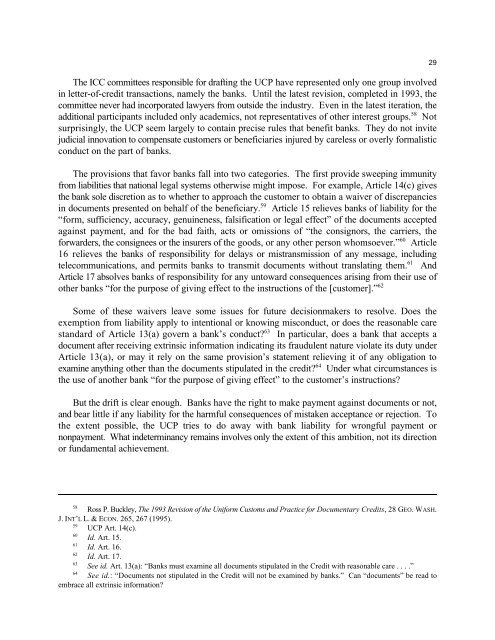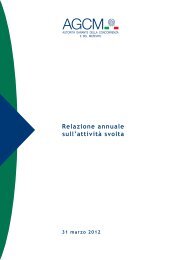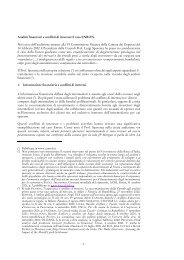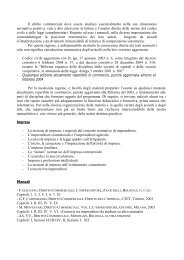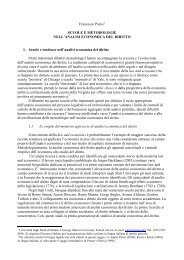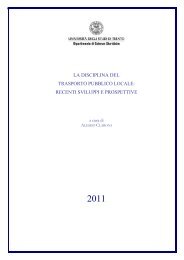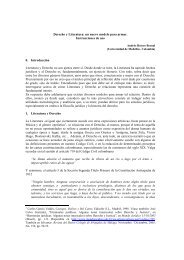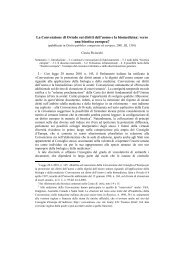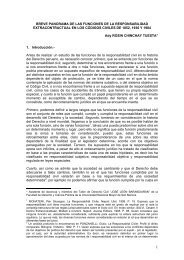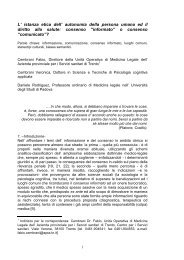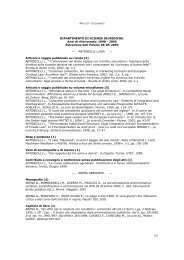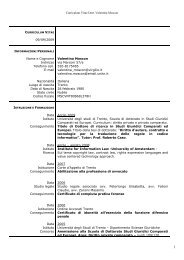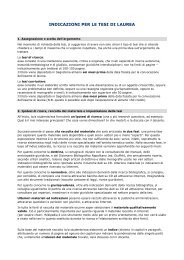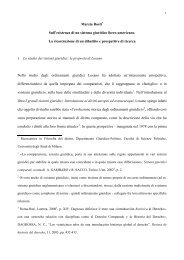The Futility of Unification and Harmonization in International ...
The Futility of Unification and Harmonization in International ...
The Futility of Unification and Harmonization in International ...
Create successful ePaper yourself
Turn your PDF publications into a flip-book with our unique Google optimized e-Paper software.
<strong>The</strong> ICC committees responsible for draft<strong>in</strong>g the UCP have represented only one group <strong>in</strong>volved<strong>in</strong> letter-<strong>of</strong>-credit transactions, namely the banks. Until the latest revision, completed <strong>in</strong> 1993, thecommittee never had <strong>in</strong>corporated lawyers from outside the <strong>in</strong>dustry. Even <strong>in</strong> the latest iteration, the58additional participants <strong>in</strong>cluded only academics, not representatives <strong>of</strong> other <strong>in</strong>terest groups. Notsurpris<strong>in</strong>gly, the UCP seem largely to conta<strong>in</strong> precise rules that benefit banks. <strong>The</strong>y do not <strong>in</strong>vitejudicial <strong>in</strong>novation to compensate customers or beneficiaries <strong>in</strong>jured by careless or overly formalisticconduct on the part <strong>of</strong> banks.<strong>The</strong> provisions that favor banks fall <strong>in</strong>to two categories. <strong>The</strong> first provide sweep<strong>in</strong>g immunityfrom liabilities that national legal systems otherwise might impose. For example, Article 14(c) givesthe bank sole discretion as to whether to approach the customer to obta<strong>in</strong> a waiver <strong>of</strong> discrepancies59<strong>in</strong> documents presented on behalf <strong>of</strong> the beneficiary. Article 15 relieves banks <strong>of</strong> liability for the“form, sufficiency, accuracy, genu<strong>in</strong>eness, falsification or legal effect” <strong>of</strong> the documents acceptedaga<strong>in</strong>st payment, <strong>and</strong> for the bad faith, acts or omissions <strong>of</strong> “the consignors, the carriers, the60forwarders, the consignees or the <strong>in</strong>surers <strong>of</strong> the goods, or any other person whomsoever.” Article16 relieves the banks <strong>of</strong> responsibility for delays or mistransmission <strong>of</strong> any message, <strong>in</strong>clud<strong>in</strong>g61telecommunications, <strong>and</strong> permits banks to transmit documents without translat<strong>in</strong>g them. AndArticle 17 absolves banks <strong>of</strong> responsibility for any untoward consequences aris<strong>in</strong>g from their use <strong>of</strong>other banks “for the purpose <strong>of</strong> giv<strong>in</strong>g effect to the <strong>in</strong>structions <strong>of</strong> the [customer].” 62Some <strong>of</strong> these waivers leave some issues for future decisionmakers to resolve. Does theexemption from liability apply to <strong>in</strong>tentional or know<strong>in</strong>g misconduct, or does the reasonable care63st<strong>and</strong>ard <strong>of</strong> Article 13(a) govern a bank’s conduct? In particular, does a bank that accepts adocument after receiv<strong>in</strong>g extr<strong>in</strong>sic <strong>in</strong>formation <strong>in</strong>dicat<strong>in</strong>g its fraudulent nature violate its duty underArticle 13(a), or may it rely on the same provision’s statement reliev<strong>in</strong>g it <strong>of</strong> any obligation to64exam<strong>in</strong>e anyth<strong>in</strong>g other than the documents stipulated <strong>in</strong> the credit? Under what circumstances isthe use <strong>of</strong> another bank “for the purpose <strong>of</strong> giv<strong>in</strong>g effect” to the customer’s <strong>in</strong>structions?But the drift is clear enough. Banks have the right to make payment aga<strong>in</strong>st documents or not,<strong>and</strong> bear little if any liability for the harmful consequences <strong>of</strong> mistaken acceptance or rejection. Tothe extent possible, the UCP tries to do away with bank liability for wrongful payment ornonpayment. What <strong>in</strong>determ<strong>in</strong>ancy rema<strong>in</strong>s <strong>in</strong>volves only the extent <strong>of</strong> this ambition, not its directionor fundamental achievement.2958Ross P. Buckley, <strong>The</strong> 1993 Revision <strong>of</strong> the Uniform Customs <strong>and</strong> Practice for Documentary Credits, 28 GEO. WASH.J. INT’L L. & ECON. 265, 267 (1995).59UCP Art. 14(c).60Id. Art. 15.61Id. Art. 16.62Id. Art. 17.63See id. Art. 13(a): “Banks must exam<strong>in</strong>e all documents stipulated <strong>in</strong> the Credit with reasonable care . . . .”64See id.: “Documents not stipulated <strong>in</strong> the Credit will not be exam<strong>in</strong>ed by banks.” Can “documents” be read toembrace all extr<strong>in</strong>sic <strong>in</strong>formation?


